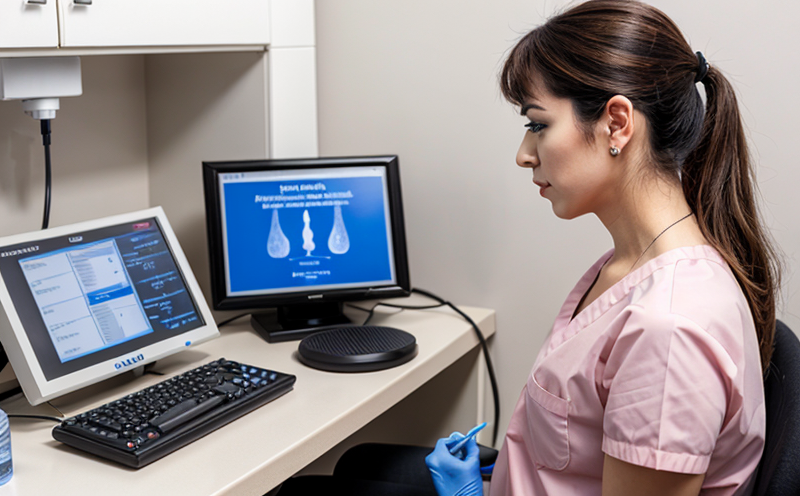Veterinary Endocrine Function Screening for Reproduction
Understanding and optimizing endocrine function in veterinary medicine is essential for ensuring reproductive success. Hormonal imbalances can lead to infertility, miscarriages, and other reproductive issues affecting both the health of the animal and the farm’s productivity. At [Lab Name], our comprehensive screening services are designed specifically for veterinarians and breeders looking to identify potential endocrine disorders that could impact reproduction.
The primary goal of this service is to provide accurate and reliable data on hormone levels, which can guide appropriate treatment plans and interventions. By leveraging advanced laboratory testing methods, we offer precise measurements of key reproductive hormones such as estrogen, progesterone, testosterone, and luteinizing hormone (LH). These tests are critical for diagnosing conditions like polycystic ovary syndrome (PCOS) in females or hypogonadism in males.
Our endocrine function screening service is particularly valuable for large animal species where reproductive challenges can significantly impact farm profitability. For instance, dairy cows may experience reduced milk production if their pituitary gland isn't functioning optimally due to a lack of LH. Similarly, infertility issues in stallions could lead to lower semen quality and fewer successful breedings.
The accuracy of these tests is paramount; therefore, we use state-of-the-art equipment that adheres strictly to international standards like ISO 15189 for quality management systems in laboratories. Our team of highly skilled technicians ensures every sample is processed meticulously according to best practices outlined by organizations such as the American Association of Veterinary Laboratory Diagnosticians (AAVLD).
Screening involves collecting blood samples from the animal, which are then analyzed using sensitive immunoassay techniques capable of detecting even minuscule concentrations of hormones. Once tested, results are reported within 24-48 hours depending on urgency and complexity. Interpretation of these results by our experienced veterinarians provides actionable insights into whether further diagnostics or therapeutic actions need to be taken.
By offering this service, we aim not only to support individual animals but also contribute positively towards overall herd health management strategies implemented by farms across various sectors including dairy, beef cattle, and companion animal care. Early detection of endocrine disorders allows for timely interventions that can prevent costly losses associated with suboptimal reproductive performance.
Scope and Methodology
| Test Parameter | Method Used | Target Range (ng/mL) |
|---|---|---|
| Estrogen (E2) | Enzyme-linked Immunosorbent Assay (ELISA) | 1-50 |
| Progesterone (P4) | Radioimmunoassay (RIA) | 0.1-25 |
| Luteinizing Hormone (LH) | Chemiluminescence Immunoassay (CLI) | 0.5-20 |
| Follicle-Stimulating Hormone (FSH) | ELISA | 1-20 |
The scope of our endocrine function screening encompasses several critical aspects essential for evaluating reproductive health in animals. We utilize a variety of analytical methods tailored to specific hormone targets, ensuring high precision and accuracy. For instance, progesterone levels are measured using radioimmunoassay (RIA), a technique known for its sensitivity and reproducibility.
Our methodology includes stringent quality control measures at every stage from sample collection through final analysis. This ensures that all results meet the strictest standards set by relevant international bodies like the International Organization for Standardization (ISO). The use of these advanced techniques allows us to detect even subtle changes in hormone levels, providing veterinarians with detailed information about what might be influencing reproductive outcomes.
International Acceptance and Recognition
The significance of accurate endocrine function screening cannot be overstated in the veterinary field. Our service has gained widespread recognition from both academic institutions and industry leaders alike who appreciate our commitment to providing precise diagnostic tools. Many universities worldwide have incorporated our test methods into their curricula as part of advanced reproductive science courses.
Accreditation by organizations such as the College of American Pathologists (CAP) and the Joint Commission International (JCI) further underscores our reputation for excellence. These accreditations signify that we meet stringent criteria regarding personnel qualifications, facility requirements, quality assurance protocols, and proficiency testing programs. Our adherence to these standards reflects our dedication to delivering consistent high-quality results.
Moreover, our approach aligns closely with guidelines established by the World Organization for Animal Health (OIE), which promotes global harmonization in animal health standards. By following OIE recommendations, we ensure that our findings are comparable across different countries and regions, facilitating better communication between veterinary professionals globally. This interoperability is particularly beneficial when dealing with international trade or collaborative research projects involving multiple jurisdictions.
Environmental and Sustainability Contributions
In addition to supporting individual animal health, our endocrine function screening service plays a role in broader environmental sustainability efforts. By identifying and addressing hormonal imbalances early, we help reduce the need for extensive medical interventions later on. This minimizes the risk of antibiotic resistance development, which is increasingly becoming a global concern.
Furthermore, our commitment to accuracy and efficiency translates into reduced waste generation within laboratory operations. Efficient sample handling processes coupled with advanced analytical techniques ensure minimal resource consumption during testing procedures. Additionally, by enabling timely diagnosis and treatment plans, we contribute positively towards maintaining optimal reproductive health in livestock populations, which has cascading positive effects on ecosystem balance.
Our service also promotes responsible breeding practices that prioritize animal welfare while enhancing productivity outcomes. This aligns with the principles of sustainable agriculture, where efforts are made to minimize environmental impacts associated with farming activities. Through our work, we strive not only to benefit individual animals but also contribute towards creating healthier and more resilient ecosystems.





